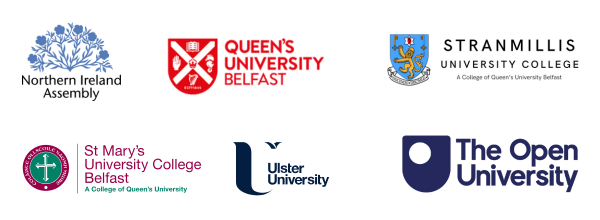Dr Raffaella Folli, Dr Christina Sevdali, Dr Catrin Rhys, Dr Jacopo Romoli and Prof Alison Henry (Ulster)
In linguistically diverse societies, language issues are recognised to mediate social inclusion and hence be significant for social inclusion policies. More specifically, failure to support the language needs of newcomer pupils can lead to social exclusion and underachievement in education. This presentation reports on ‘Language made fun’, a play-based language intervention programme for primary school newcomer pupils from refugee families. The project is a joint initiative between Ulster Centre on Multilingualism (UCoM) and Barnardo’s NI. UCoM, established by the linguistics team (Ulster’s School of Communication), is a service for parents and professionals dealing with children acquiring more than one language. ‘Language made fun’ is specifically aimed at supporting the English language skills of newcomer pupils who may be vulnerable to exclusion and educational failure. The presentation highlights key findings on the post-intervention evaluation of the project’s pilot, which indicated improvements in both vocabulary and grammar and both teacher and parent reports indicated positive outcomes for language and confidence in communication. At the policy level, the UCoM analysis of the pilot revealed that there is an immediate need for more linguistically-informed assessment of newcomer pupils’ language skills to meet their linguistic needs and improve educational access. This project showed that relatively small investment in linguistic expertise had a transformative effect on the language and confidence of the children involved. Relying on these findings, the presentation makes recommendations about accessing relevant linguistic expertise in a consistent manner for all newcomer pupils.
Date of seminar: 5 November 2014.
See also:
Policy Briefing
Presentation



